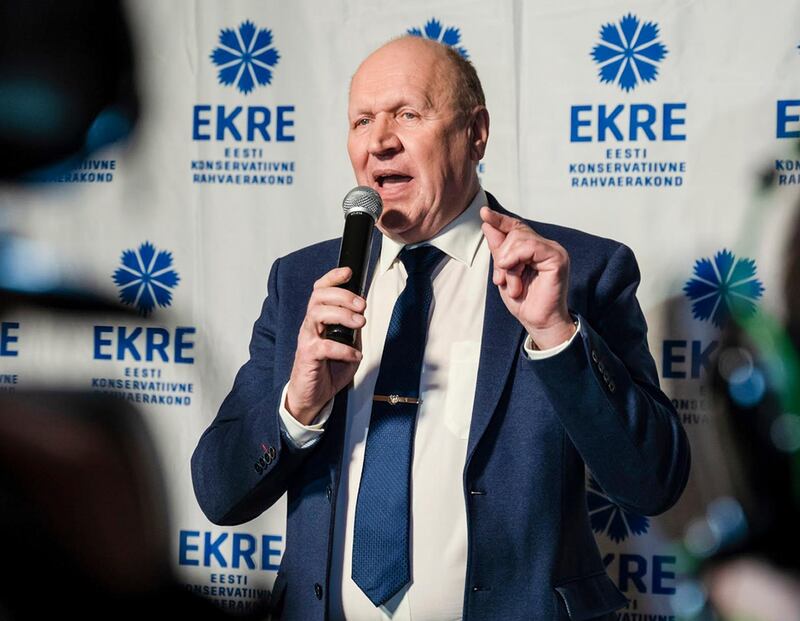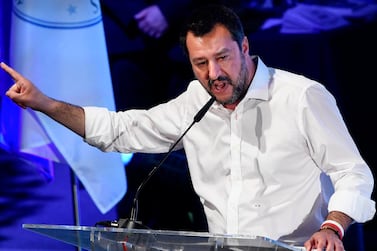A far-right party is poised to enter Estonia's government for the first time after the country's biggest centre-left party brokered a three-way coalition deal on Saturday.
The agreement to form a new government in the northern European country includes the far-right Estonian Conservative People’s Party (EKRE), led by Mart Helme, who will hold the post of interior minister. Mr Helme’s son, Martin, is set to become finance minister, with the party controlling the environment, rural affairs, foreign trade and IT portfolios as well.
The Center Party will control four ministries, including economic affairs and infrastructure, while the conservative Fatherland party would return Center leader Juri Ratas to the prime minister's office.
With a combined 56 seats, the three parties should have no problem passing the deal in the 101-seat parliament. The deal will likely put an end to the political ambitions of Reform leader Kaja Kallas, who would have become Estonia's first female prime minister.
Mr Ratas’ first term in office ended earlier this week. The deal would enable him to hold the premiership despite his party having come second in an inconclusive election.
But this will enable the euroskeptic and staunchly nationalist EKRE party – which has alarmed moderates since it was founded in 2012 – to enter parliament for the first time.
The group advocates for abolishing same-sex civil unions and opposes mandatory EU refugee quotas. It also pushed for wider use of referendums and wants Estonia to hold a referendum in 2021 on whether a marriage should be defined in law as between a man and a woman.
Populist parties have won ground across Europe ahead of elections in May to the European Parliament. EKRE received nearly 18 percent of the vote in Estonia's parliamentary election, a result in line with that of other far-right parties across Europe.
The anti-immigration Sweden Democrats (SD) made significant gains in the 2018 general election, winning about 18 per cent of the vote compared to 12.9 per cent in the previous election.
Last year saw the Austrian Freedom Party (FPÖ) become junior partner in a coalition with the government of Conservative Chancellor Sebastian Kurz. The Conservatives along with the centre-left Social Democrats have long dominated Austrian politics.
In Germany, Angela Merkel’s CDU/CSU bloc saw its worst result in almost 70 years. For AfD, their status as the largest opposition party gave them their biggest platform yet.
In Hungary and Poland, parties that condemned the EU's handling of the migrant crisis have secured the majority of the votes in national elections.








